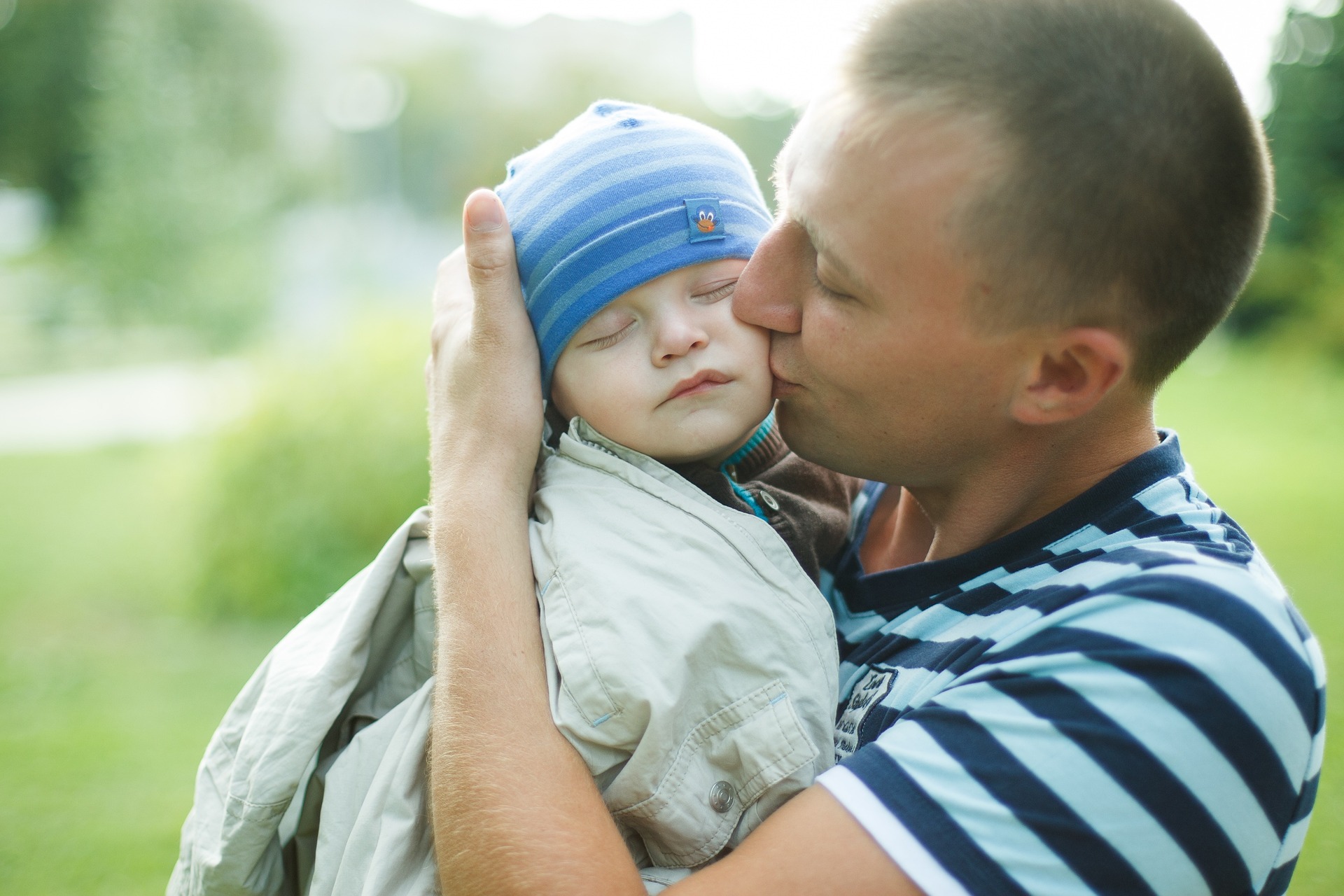Brain changes in parents
A recent study published in Cerebral Cortex found first-time dads may experience reductions in the cortical volume following the birth of their first child. This may sound like bad news, but it can actually indicate a refinement in the brain that enhances the connection with the baby. In other words, we don’t lose capacities, but rather these are better focused on what matters to take care of our descendants. Other studies have observed neuronal changes regarding decreased levels of man’s testosterone and cortisol and increased levels of oxytocin, estrogen and prolactin. These neuronal changes are also aimed at promoting the bonding experience between the father and the newborn.
In a nutshell, having a baby also changes your brain as part of the adaptation to being a dad and being ready to enhance the levels of bonding and connection with the baby.

Tips to care for your mental health
Given all the changes you are going to experience as a new dad, it is important to embrace this new period of your life and make the most out of it. In fact, a recent study showed that fathers who play an active role and are invested in childcare reported less depressive symptoms a year later.
Here are some things you can do and some thoughts that may help you feel better and make the most out of this experience.
-
You are very useful and a key part of the baby’s development. During these first months you’re in charge of logistics. Keep in mind that by taking care of the house chores and your partner , you’re taking care of the baby. These include both the ones directly related to the baby, such as making sure you have diapers, tissues, clean clothes, creams, shampoos, clean towels, blankets, etc, as well as your needs as adults, like water, food and clean clothes. The more proactive you are in anticipating not running out of essentials like the ones mentioned, the smoother everything will be. For example, using smart home assistants like Alexa or Google Home to create reminders, shopping lists or setting up alarms just with your voice may prevent some unwelcome situations.
-
Paternity Leave. This may feel out of your hands, but as much as possible try to get some paternity leave or gather as much leave as possible following the birth of the baby. During the first months, having full support from the partner is essential since everything is new, there are a lot of unknowns and there are many things to do. These initial months will pass quickly and you want to feel you’ve been a part of introducing the baby to the world for the first time.
-
Spend quality time with the baby. Fatherhood is in the small details and doing things with love. From changing a diaper, to preparing a soothing bath or when you calm the baby down when they get scared or are feeling sick. Try to enjoy the moments you spend with the baby, be present and appreciate what a uniquely rewarding experience being a father can be.
-
Develop your own mantra. There are going to be episodes of madness where you feel your brain is going to explode. For example, when you’re holding the baby while he’s crying like the world is going to end. In these moments, it may be good to repeat a mantra for yourself that helps you cope with those minutes that may feel like hours. Sentences like “this is temporary”, “it will get better”, “it’s just a few minutes”, “I can do this” may help you cope with these minutes of anguish.
-
Don’t compare yourself to other parents, and even less so to your partner! One of the main sources of unhappiness is when we compare ourselves to others, and this is also true in parenthood. You compare the development and behaviour of your baby to others and you feel yours is doing less well. Same with your feelings and behaviours, you may watch Instagram or other social networks and see how happy other parents are, how well they are doing. Remember this is all externally facing, they only show you what they want you to see and don’t reflect the entire reality. All of them struggle. Don’t compare your feelings to the mom either, they have a natural bonding and connection with the baby that is different from the one you may experience at first, so accept that and understand it doesn’t mean you don’t love or care for the baby, you just do it in a different way.
-
Be open-minded. You might have had a lot of expectations about what you were going to do as a parent (and not do!). Now it turns out you can’t do much of what you wanted and expectations are not met. Accept yourself and your reality as it is and be flexible about your change in opinions and plans. Since rigidness is only going to bring frustration and anger, make sure you’re open to change.
-
Communication and negotiations. Communication with your partner is key. Try to facilitate a space for open communication. Just listen to your partner, as you don’t need to solve all their emotions or problems, sometimes it’s enough to empathise with them and express you’re there for them. You may also want to negotiate with them about having a bit of personal space for both of you individually, where you can go to do some hobbies even if it’s once or twice a week for half an hour. You’ll both enjoy and appreciate it a lot, trust me.
-
Make time for the couple. This may not be possible during the first months, but once the baby doesn’t need to eat that often it’s important to find some time for yourselves, where you can go for lunch or to the cinema and rekindle those moments you had before the baby was born.








